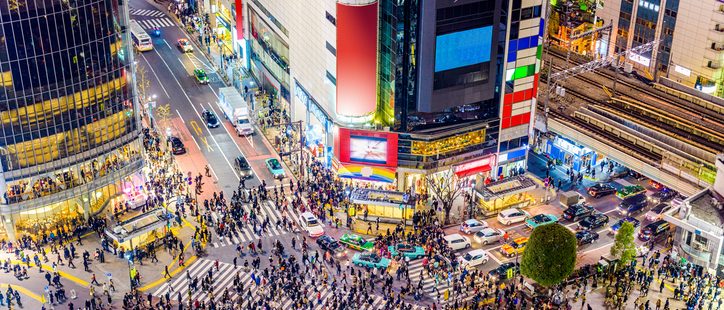Our Opinion: 2024
Japan is back in fashion

Not since the Berlin Wall fell has the Nikkei been this high. Japan’s Nikkei 225 stock index has finally surpassed its December 1989 record peak, breaking through the 39,000-point barrier. The land of the rising sun is suddenly in vogue as an investment hotspot.
Much has changed in the 34 years since the Nikkei last traded at these levels. Back in 1989, Japan was feeling hubristic. Its leading tech firms were churning out Gameboys and chunky computers. Japanese equities then accounted for nearly 40% of global stock markets, dwarfing the US.
A whole generation of investors were scarred by the brutal sell-off that followed. Stagnation persisted for decades; the Nikkei only finally bottomed out in 2009 during the global financial crisis. Reforms initiated by prime minister Shinzo Abe in the early 2010s initiated a slow but steady recovery. Now the Nikkei is finally back, gaining more than 17% already this year to make it the world’s best-performing major index. Psychologically, it is a huge moment” for Japanese investors.
By 2022 Japan’s share of the global equities’ universe had shrunk to a just 6.3%, with the US dominant at 58%. It has been a gruelling climb back – since 1990, there have been six big rallies in Tokyo, all of which ultimately fizzled out. Some analysts caution that the local market may again be running ahead of economic fundamentals: Japan slipped into recession at the end of last year and recently ceded the title of world’s third-biggest economy to Germany. Yet it is this very lack of exuberance that suggests the market is not overheating and that the rally still has room to run.
Although widely cited in the media, the Nikkei is a deeply “lawed measure of the health of Japan’s stock market. Much like America’s similarly outdated Dow Jones, it weights higher priced stocks more heavily than lower priced ones. That’s silly because the price of a stock is an arbitrary result of how many shares the company chooses to issue”. The Topix, a more accurate measure of corporate Japan that weights by market capitalisation, is actually still more than 8% below its December 1989 peak.
Index numbers also fail to reflect the compounding impact of dividends: a Japanese investor who invested everything at the very top of the 1989 bubble would have regained all their losses by March 2021 through dividend reinvestment (though that is still an extraordinarily long wait). For all that, the Nikkei’s long stagnation has been a psychological cloud weighing on sentiment in Tokyo. Now, finally, the cloud has lifted.
The Nikkei has been soaring for a while. It was Asia’s best-performer last year, with a 28% gain. The rally has been driven by stronger corporate earnings and an influx of foreign investment, which is looking for an alternative to China’s depressed markets in Asia. Above all, Japan’s rally has been propelled by a weak yen, which boosts Japan’s major industrial export firms. The yen fell 8% against the US dollar last year and is already off another 6% against the greenback in 2024.
The yen has also lost ground against the pound. As a result, the Nikkei still trades a fraction below the peak it set three years ago in sterling terms, much to the annoyance of British investors. The Yen’s weakness has been driven by interest-rate differentials. Japanese interest rates are still below zero, even as other major central banks have hiked rates, prompting investors to sell yen in favour of better yields in other currencies. Yet with Japan considering tighter policy and rate cuts expected soon in the US and UK, those differentials seem poised to close.
It thus looks increasingly likely that the yen will strengthen soon. That is dangerous for the Nikkei since the weak yen has been one of the main props of this equity rally. Yet continued improvements in corporate-governance reform should help support future returns.
The reform story isn’t finished yet Japanese corporate management has historically earnt a reputation for hoarding cash and putting shareholder returns at the bottom of the priority list. Cross-shareholdings helped insulate underperforming managers from market scrutiny. Yet reforms are slowly bringing boardroom culture in line with global norms.
Japan’s stock market recently implemented changes to penalise firms that fail to improve profitability, shareholder returns and valuations, says the Taking Stock column in Investors’ Chronicle. There are already signs of progress: dividends from Japanese firms look set to hit ¥15.2trn (£79bn) in the current fiscal year, which would be the third consecutive annual record.
Despite the progress, Japanese companies still return a much smaller share of net income to shareholders than their European and American counterparts, and roughly 40% of Tokyo’s prime stocks still trade at a discount to book value. There is much room for improvement, so it’s not too late to reap the benefits of Tokyo’s corporate-governance reforms.
25th March 2024
